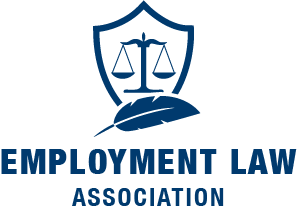Employment Discrimination Lawyer
Employees are protected from employment discrimination through federal and state laws. While federal protections are fairly extensive, many state laws also provide groups of people with protection. Understanding these laws will enable individuals to recognize if they have been discriminated against in relation to employment.
Protected Classes
Through numerous different laws, the federal government prohibits discrimination based on:
- Race/Color
- National origin
- Religion
- Sex
- Disability
- Age (for people over 40)
- Citizenship status
- Genetic information
Federal laws provide the minimum protections afforded to individuals. However, many states have implemented stronger laws to provide protection from:
- Marital status
- Sexual orientation
- Military status
- Unfavorable military discharge
- Gender identity
- Arrest record
- Lack of permanent mailing address, or using the address of a shelter or social service provider.
Equal Employment Opportunity Commission
The federal agency in charge of overseeing the rights of employees and ensuring discrimination does not take place is the U.S. Equal Employment Opportunity Commission (EEOC). This is the agency where victims of employment discrimination can file a complaint and the agency will investigate.
Some of the issues the EEOC will investigate include:
- Unfair treatment because of an employee’s age, color, disability, genetic information, national origin, and sex. This includes gender identity, pregnancy, and sexual orientation.
- Any harassment committed by co-workers, supervisors, managers, or any other individuals in the workplace based on the above list.
- Improper questions or disclosing information regarding an employee’s medical information or genetic information.
- Denying an employee’s reasonable workplace change is needed because of the employee’s disability or religious beliefs.
- Retaliation against an employee who complained about employment discrimination, or assisted others in an investigation or proceeding.
State Complaints
Each state also has its own equivalent of the EEOC. These state agencies also investigate employment discrimination complaints filed against private employers, unions, employment agencies, and state and municipal governments.
State laws also protect employees from discrimination based on pregnancy, childbirth, or medical conditions that are related to pregnancy or childbirth. The employer is also required to provide reasonable accommodations if the employee makes these requests for issues related to pregnancy or childbirth. Usually, the only exceptions that would waive the requirement of the employer are if they can demonstrate that providing the employee with these accommodations would impose an undue hardship on the employer’s company.
Each state has its own deadline for how much time the victim has to file the claim. An employment discrimination lawyer will be able to provide you with these deadline dates, as well as assist in the preparation and filing of your complaint.
In addition to filing federal and/or state complaints for employment discrimination, the employee may also be able to take civil action against them in a lawsuit. Due to the different avenues for legal recourse a discriminated employee may have, it is best to speak with an experienced employment discrimination lawyer to find out what the best course of action is in your particular situation.
Thanks to each employment discrimination lawyer from Disparti Law Group for their insight into legal options victims of employment discrimination may have.
